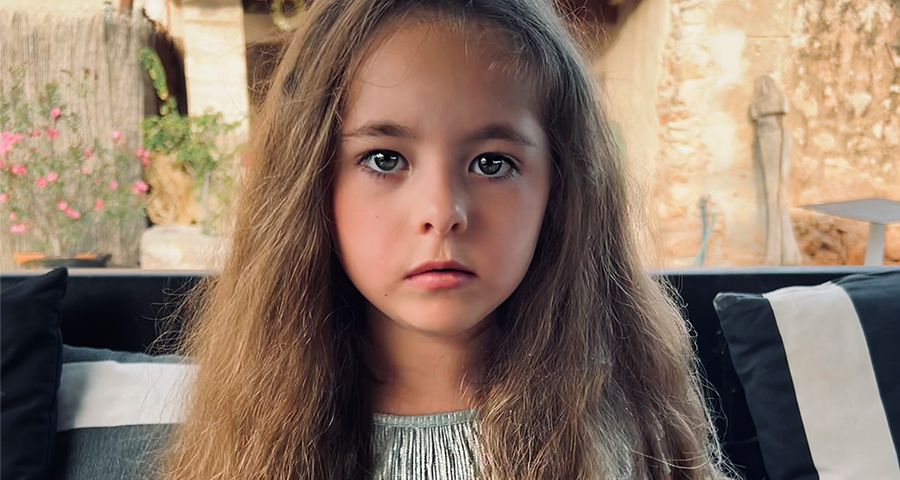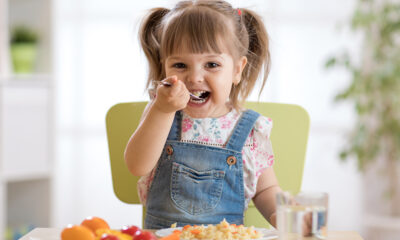Advice
Sibling Loss Winston Wish Expert Advice


Expert / 28 August, 2024 / My Baba
Coping with the loss of a sibling is a profoundly challenging experience, especially for children and young people. Navigating the complex emotions of grief can be overwhelming, leaving many unsure of where to turn for support. That’s where Winston’s Wish steps in. As a leading charity dedicated to supporting children and families through bereavement, Winston’s Wish offers invaluable resources and guidance. In this blog, we delve into the most pressing questions about sibling loss, providing insights and compassionate answers based on the expertise of Winston’s Wish. Whether you’re a grieving sibling, parent, or someone supporting a bereaved child, you’ll find essential advice to help you navigate this difficult journey.
What are some common emotional responses young children experience after losing a sibling?
Although they will feel it just as deeply, children will experience and express grief differently to adults. This means they might react quite differently to how adults would or how you might expect. Initial reactions to the news of a death may vary greatly from considerable distress to finding it hard to speak, or they may not react very much at all.
Young children, in particular, tend to ‘jump’ in and out of their grief – a little like jumping in and out of a puddle – leaping from feeling very upset and distressed one moment to wanting to know what’s for tea or whether they can play football, for example. This is because children need a break from the powerful emotions that accompany their grief and so can jump out of them for a while so that they are not overwhelmed.
The emotional responses will be different for every child, but some common themes may be:
- Sadness
- Anger/Distress
- Guilt
- Behaviour changes, appetite, sleep disturbances
- Regression
- Attachment, separation anxiety
- Anxiety, vulnerability
- Fear, fear around other siblings safety
- Guilt for surviving the sibling
- Health anxiety
Parents may be overwhelmed by their own grief, leading the child to feel rejected or alone in their own grief. If you are supporting a child or young person (aged 0-25) who is struggling with their grief, please call our Freephone Helpline team on 08088 020 021 or email ask@winstonswish.org. We can provide advice, support, and resources.
If you need urgent support, the Winston’s Wish Crisis Messenger is available 24/7 for free, confidential support in a crisis. Text WW to 85258.
How can the loss of a sibling affect one’s identity and sense of self?
A bereavement can impact a child’s self-confidence and self-esteem, and this is particularly present in sibling bereavements. The child may feel pressure to make the most out of the life that their sibling wasn’t able to have in both positive (perspective on life – make the most out of life) and negative ways (pressure to live a certain life that maybe their sibling didn’t get chances to have).
Surviving siblings may feel they need to hide their problems and feelings from family to avoid further pressure. There may also be a possibility of turning to unhealthy coping strategies as they get older, such as alcohol and drug misuse or risk-taking behavior, as a way of dealing with their grief. Self-blame may also be something the child experiences, they might think that something they did or did not do may have caused the bereavement, this is especially relevant in bereavements by suicide.
How does the loss of a sibling impact family dynamics and relationships with surviving siblings and parents?
Any bereavement can create shifts in family dynamics, but this is particularly present with a sibling bereavement, especially if they are now living as an only child. Effects of bereavement might mean they have to take on more caring responsibilities while their parents are grieving, or they may feel their parents’ grief overshadows their own. Children might interpret their parents’ grief as rejection and this may lead to regression or more clingy behavior.
After a bereavement, parent relationships can break down, struggle, or be put under pressure. Some children have told us that they may sometimes feel that their parents would have preferred it if they would have died, this is referred to as having a sense of ‘survivor’s guilt’.
Siblings might have provided support for each other through difficult family situations. For example, family arguments, house moves, school transitions, friendship issues, and as a result of the sibling’s death, they may now feel isolated and less resilient. Sibling relationships can be complicated and fraught with arguments. Some young people have told us that they feel guilty about things they may have said and done to their siblings, and this makes their grief more difficult.
If a sibling may have been unwell or had a high level of care needs before they died, there may be feelings of relief or resentment that they feel unable to express.
How can families support each other while grieving a sibling loss?
It is normal for parents to struggle to be available for children due to their own grief when another child has died. However, children manage this change better if clear information is given about what is happening and why. For example, you could say, ‘Mummy is finding today really difficult as I’m feeling really sad that Tom died.’
There will be times or days when communicating clearly like this feels easier and times it feels really hard. Look after yourself and do what you feel able to when you can. However, speaking honestly with children can help them feel included and valued at a time when life is really difficult. In time, you can explore feelings together, but it is ok if you notice you are grieving differently, too.
Here are some ways you can try to support each other:
- Check-in, communicate, and offer space to talk – let children know that you are there to support them, as well as other trusted adults they can reach out to.
- Be open about feelings – talk about it if you are experiencing different emotions too – this can help validate feelings for children and young people.
- Create a memory box, memory note jar, scrapbook… – things that may remind them of their sibling.
- Create opportunities to remember their sibling on anniversaries or special occasions – this can strengthen continuing bonds.
- Find communities for both yourself and the children – the grieving process can often feel lonely, and being around other people going through similar experiences may help with understanding.
How can friends and extended family members best support someone who has lost a sibling?
- Sometimes, being there for someone and offering support is all someone might need. Providing space and opportunities to talk or support in the way they need on a regular basis is important so that when they are ready, they know their friend or family member will support them.
- Help to validate the child’s feelings by reassuring them that whatever they’re feeling is okay and normal.
- Talk about their sibling, continue to use their name and share memories and things they like or would have liked.
- Maintain their routine: support them by including them in activities, offer lifts to places they need to go, encourage them to continue their hobbies, clubs, and seeing their friends
- Check-in around important dates and acknowledge their grief at these times. Their emotions may be higher and more intense, and that’s completely normal.
What role do support groups or therapy play in the grieving process for young children?
Support groups
knowing they are not alone, other children are going through similar experiences, being able to share experiences, hear other people’s stories, and share their own. Support the grieving process by validating feelings, activities/play to enable young children to express their feelings.
A safe space for young people to explore their feelings of guilt and confusion with other young people who may feel similarly.
1:1 support
A young person may feel more open to sharing their feelings with someone external from the family, whom they don’t know, as opposed to someone they do, as we often hear from young people that they worry about upsetting family members, worry about their response/reactions. We encourage young people to reach out to those around them and know them well, but for some young people, talking to someone they don’t know can sometimes feel easier.
What strategies can help someone honor and remember their sibling while continuing to move forward with their life?
Children and young people who are old enough to have memories of the person who died can often worry that they will forget them – their voice, their smile, their smell. So, helping them maintain those memories can help them deal with their grief.
Other children may have been too young when the person died to have many memories. This can make them feel distanced from the person who should feel so close. For them, telling stories and sharing your memories of that person can help them as they grow up.
Here are a few ideas of ways to honor their sibling:
- Talking about their sibling, sharing memories, keeping memories alive
- Create a memory box
- Look at photographs and videos
- Start a memory note jar (the child can write down memories and put them in the jar; they could also ask others who knew them to add memories)
- Visit places they liked to go to/went to together
- Journal, write letters to their sibling
- Eat their favorite foods
Are there any recommended books, articles, or resources for those seeking to understand more about sibling loss?
What advice would you give to someone who is just beginning to process the loss of a sibling?
There is no right or wrong way to grieve. It’s really important to remember that there are no set rules or stages of grief and there is no right or wrong way to feel after a death. There are no ‘oughts’ or ‘shoulds.’
Each person will be affected in their way by a death because the experience will be different for everyone, even within the same family. Everyone will have had their relationship with the person who died, their experience of other losses and pains, and their levels of support from family and friends.
Each person will also have their way of expressing their feelings. You may find it helpful to share your thoughts and emotions. Or you may find it hard to cry or put into words how you are feeling. It doesn’t mean you aren’t as upset as someone who can’t stop crying, you just have a different way of showing your feelings.
Winston’s Wish provides support for grieving children, young people (up to 25), and for adults supporting them. Please call our Freephone Helpline on 08088 020 021 (open 8 am-8 pm, Monday to Friday) or email ask@winstonswish.org
If you need urgent support, the Winston’s Wish Crisis Messenger is available 24/7 for free, confidential support in a crisis. Text WW to 85258.
READ NEXT
Parenting Through Grief: Tips On How To Cope
How To Cope With Pregnancy After Baby Loss: Advice From Tommy’s Midwives
-

 Destination8 months ago
Destination8 months agoSingapore Airlines CEO set to join board of Air India, BA News, BA
-

 Breaking News9 months ago
Breaking News9 months agoCroatia to reintroduce compulsory military draft as regional tensions soar
-

 Tech News12 months ago
Tech News12 months agoBangladeshi police agents accused of selling citizens’ personal information on Telegram
-

 Gadgets3 months ago
Gadgets3 months agoSupernatural Season 16 Revival News, Cast, Plot and Release Date
-

 Productivity11 months ago
Productivity11 months agoHow Your Contact Center Can Become A Customer Engagement Center
-

 Breaking News10 months ago
Breaking News10 months agoBangladesh crisis: Refaat Ahmed sworn in as Bangladesh’s new chief justice
-

 Gadgets2 weeks ago
Gadgets2 weeks agoFallout Season 2 Potential Release Date, Cast, Plot and News
-

 Toys11 months ago
Toys11 months ago15 of the Best Trike & Tricycles Mums Recommend























